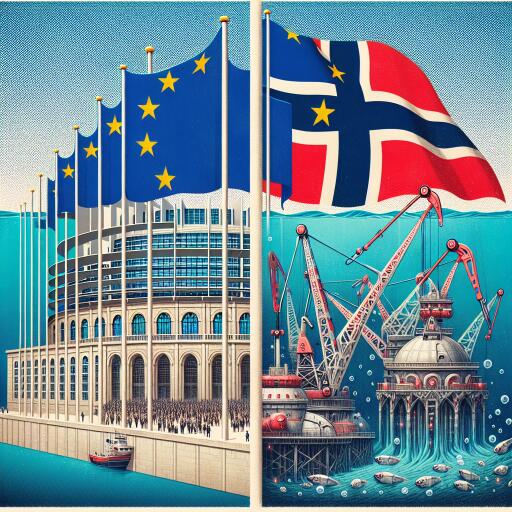
EU Parliament Resolution Criticises Norway’s Deep Sea Mining Plans
In a move that underscores the growing concern over the environmental impacts of deep-sea mining, the European Parliament recently adopted a resolution that takes a firm stance against Norway’s plans to commence deep-sea mining activities in Arctic waters. This decision by Norway, made in January 2024, to proceed with deep-sea mining has sparked significant controversy and debate across the environmental community and beyond.
The resolution, while not legally binding, signifies a clear opposition from the EU towards the Norwegian government’s course of action. The primary apprehensions revolve around the potential negative impacts such mining activities could have on the marine ecosystem, including disrupting fisheries, releasing methane, causing biodiversity loss, and conducting inadequate environmental assessments.
Deep concerns have been raised not only by member states of the EU and various international organizations but also by Norway’s own Environment Agency, all urging caution or advocating for a complete moratorium on deep-sea mining due to its possible irreversible consequences. Despite this, the resolution saw overwhelming support within the European Parliament, with 523 members voting in favor, 34 against, and 59 abstaining.
Catherine Chabaud, a notable member of the European Parliament, highlighted the importance of this resolution, indicating it sends a robust message regarding the EU’s stance on deep-sea mining. Chabaud voiced concerns over setting a precedent that might encourage other nations to pursue similar endeavors. “If Norway goes in this direction and opens the door to exploitation, probably it will be easier for China and others to go on this way,” Chabaud expressed. “I think it was very important to react.”
The resolution further specifies the critical importance of the deep sea as the planet’s oldest biome and one of the least understood areas by humanity. It underscores the deep sea’s immense biodiversity, its role in providing crucial environmental services such as long-term carbon sequestration, and its vulnerability to human disturbances. “Serious concerns have been raised about the impacts of deep-sea mining on the loss of biodiversity and on the functioning of the ecosystem, the effects of which will be locked in for many generations to come,” as detailed in Article H of the resolution.
Environmental advocacy groups have lauded the European Parliament’s decisive political stance on the matter. Martin Webeler, a campaigner for the Environmental Justice Foundation, remarked on the unusual nature of the European Parliament’s critique, considering Norway’s close partnership with Europe. “Norway is not dependent on Europe’s support, but they are close partners…This is a very unusual move that the European Parliament is criticising a close partner like that, so it has strong political implications,” Webeler said.
As debates and discussions around the sustainability and environmental impacts of deep-sea mining continue, the European Parliament’s resolution serves as a significant marker of the growing resistance against activities that may pose a threat to marine biodiversity and the overall health of our planet’s oceans.





Leave a Reply